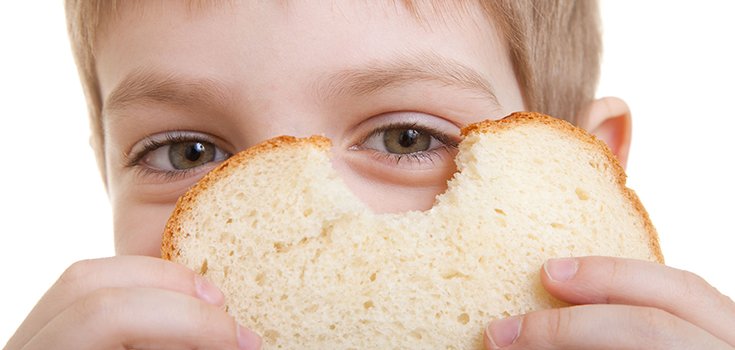Gluten Free Diets May Do More Harm than Good for Children

Gluten free diets have been all the rage for the past few years, though medical evidence suggests that only a handful of people (mainly those with celiac disease or allergic to wheat) should be on the diet. Many modern parents have taken their children off gluten citing celiac disease or gluten sensitivity without prior testing by their doctor. New research warns that this could actually be more damaging than helpful.
Norelle R. Reilly, author of the article “The Gluten-Free Diet: Recognizing Fact, Fiction, and Fad” in the Journal of Pediatrics, as well as a pediatric gastroenterologist at Columbia University Medical Center, had the following to say about the effects of gluten free diets and children:
“The increasing popularity of the GFD [gluten-free diet] has important implications for children. Parents sometimes place their children on a GFD in the belief that it relieves symptoms, can prevent CD [celiac disease], or is a healthy alternative without previous testing for CD or consultation with a dietitian.”
Celiac disease accounts for just 1 percent of the population, and the treatment for that is avoiding gluten. However, despite the relatively low number of celiac cases, the gluten free industry is booming. Sales are expected to reach a whopping $24 billion by 2020. [1]
Reilly warns that gluten-free products are not fortified in the same way that products which contain gluten are. This means that children could be missing out on important nutrients like iron, vitamin B complex, fiber, folate, calcium, magnesium and vitamin D.
Reilly also states that a lack of proper fiber intake could also lead to gastrointestinal problems in children, which can lead to constipation, as well as many other issues. She suggests a diet that focuses on fresh fruit, vegetables, carbohydrates and lean protein, which she advocates as the best for children.
Additionally, Reilly feels it is very important that parents do not rely on information gleaned from the Internet alone. Instead, when their child is suffering gastrointestinal issues, it is important to seek treatment at the doctor instead of self-treatment. Often times, the symptoms will go away after a time, but without the consultation of a doctor, no one is quite sure why. Parents should, instead, involve their doctors in decisions to swap diets.
Sources:
[1] Tech Times
